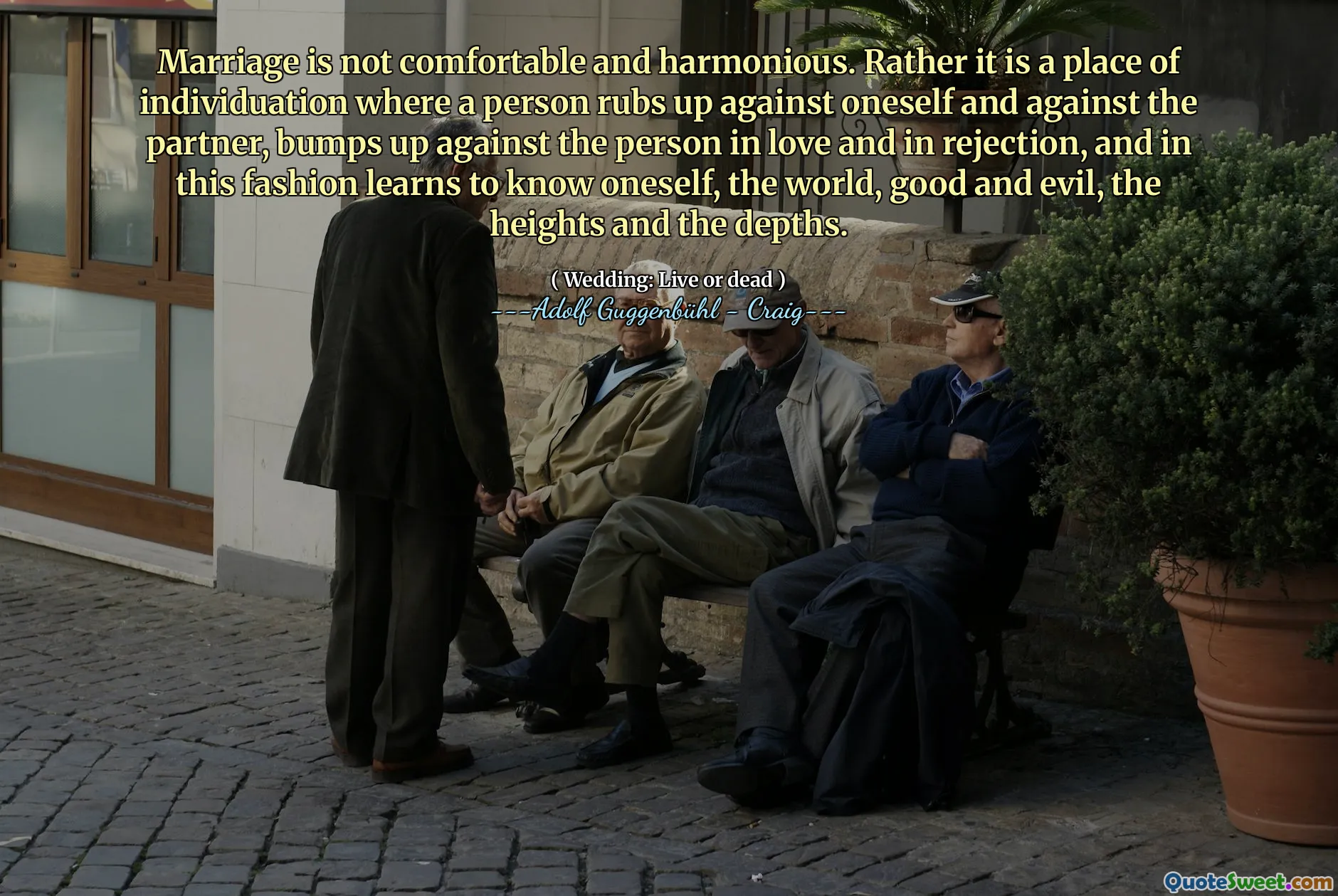
Marriage is not comfortable and harmonious. Rather it is a place of individuation where a person rubs up against oneself and against the partner, bumps up against the person in love and in rejection, and in this fashion learns to know oneself, the world, good and evil, the heights and the depths.
Marriage, as described in the quote, is far from the idyllic notion of seamless harmony and effortless companionship. Instead, it is portrayed as a profound journey of individuation—an active process of self-discovery achieved through the daily interactions and challenges within a partnership. The idea that spouses 'rub up against oneself and against the partner' emphasizes the friction and discomfort that can arise when two individuals with distinct perspectives and histories come together. Such friction is not a sign of failure but rather a vital part of growth. It suggests that meaningful relationships serve as mirrors, reflecting both our strengths and shadows, thereby prompting introspection and self-awareness.
This perspective frames conflict and rejection not as destructive forces but as essential steps toward understanding oneself and others more deeply. Through this dynamic process, one learns about personal values, boundaries, desires, and fears. Furthermore, the quote indicates that this work of self-realization within marriage extends beyond individual development to encompass moral and philosophical understanding—knowing good and evil—and appreciating emotional depths that range from heights of love to the depths of suffering.
On a broader level, this portrayal of marriage challenges the romantic ideal and invites a view of partnership as a continuous journey of growth, vulnerability, and discovery. It underscores that true union involves navigating discomforts and contradictions with patience and openness, ultimately fostering a more genuine sense of connection and self-awareness. This approach can deepen our appreciation for the transformative potential inherent in intimate relationships, suggesting they are as much about personal development as about companionship.
This understanding aligns with the themes presented in '(Wedding: Live or dead)' by Adolf Guggenbühl-Craig, which emphasizes that genuine marriage is a complex process of individuation and personal evolution, unavoidable yet immensely rewarding.






